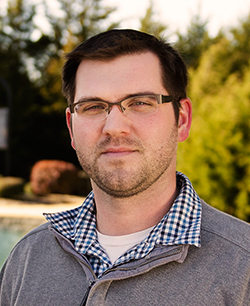Two lines of men walk across a beach. One line clad in black, the other in orange jumpsuits. Due to the headlines that filled our newsfeeds, we knew this was not going to be easy to watch. But many did watch, in helpless disbelief, as the men in black forced the men in orange to their knees, as each captor cupped his hand under the chin of his captive, forcing his face up and giving the knife easier access to his throat. The men in orange would soon go from looking toward heaven to seeing Jesus face to face.
Many of us remember seeing the video, or at least pictures from the video. It struck me that such an atrocious act was juxtaposed with the peaceful, serene beach in the background. It was that moment that forced me to come to the realization that our family in Christ is truly suffering across the world while I sit in my comfy office chair watching YouTube.
I knew there had to be something I could do; some way I could help. My search led me to Tom Doyle, author of Killing Christians: Living the Faith Where It’s Not Safe to Believe and regional director of the Middle East and Central Asia for E3 Partners.
Doyle moved to the Middle East in 2001 with his wife and six children. Many in the church he was pastoring asked how he could move there after the event of 9/11. “People thought we had lost our minds,” he said. “But we found that 9/11 was a wake-up call for many Muslims. Each one had to answer if serving Allah meant killing innocents. The overwhelming majority of Muslims felt that was not their Islam.”
In fact, 9/11 became an open door for Doyle and his family. He said, “We found many Muslims who were very open to a relationship with Christ if we presented it the right way. We had to earn their respect and show them honor. Once we did that, they invited us to share the gospel.”
After years of serving on the front lines, Doyle came back to the States to work for E3. Being intimately aware of the persecution happening in the Middle East, he was disturbed and heartbroken over how American news outlets reported on international persecution and the portrayal it gave to Christians in the states. The reports he saw only focused on the loss of life, never the victories of faith.
Those victories are from people Doyle met, taught, and discipled. Some victories came because people escaped imprisonment and torture to live another day. Some victories came because believers escaped their imprisonment and torture to live for eternity.
Many in the American church believe Christians in the Middle East have a superfaith we could never hope to attain. Doyle disagrees. He said, “The Jesus in the Middle East is the same Jesus in America. The strength found in the hearts of our brothers and sisters is available to us. But two questions quicken this deep faith among them: ‘Are you willing to suffer for your faith in Jesus?’ and ‘Jesus died for you; are you willing to die for Him?’ For those people to move forward and be baptized, they have to answer in the affirmative. This is the reality of Christians across the world. Persecution is on their doorstep. The danger may even extend beyond themselves and bring the deaths of their family, their children. It may even be their family who tries to kill them.”
In light of all the suffering, it is easy to begin feeling pity for Christians under turmoil, but many going through it do not feel like victims. They choose to see it as a blessing and a privilege. Doyle said, “A mother, whose son was paraded onto that beach in an orange jumpsuit to be killed, said, ‘Just think of all the families around the world Jesus could have selected to die for Him. How privileged we are that we were allowed to be a part of this.’ The enduring testimony of the men on that beach is that they prayed for the salvation of their murderers as they were being slain.”
The world is a dark and dangerous place. But it is in the darkest of dark that the gospel shines brightest. Christians have a great opportunity to make their lights blindingly shine, whether in a church pew singing freely or on a beach while praying for the man with a knife to his throat.
To learn how you can serve those enduring persecution, look our article, "After Prayer," written after our 2015 Orange Letter Campaign.






